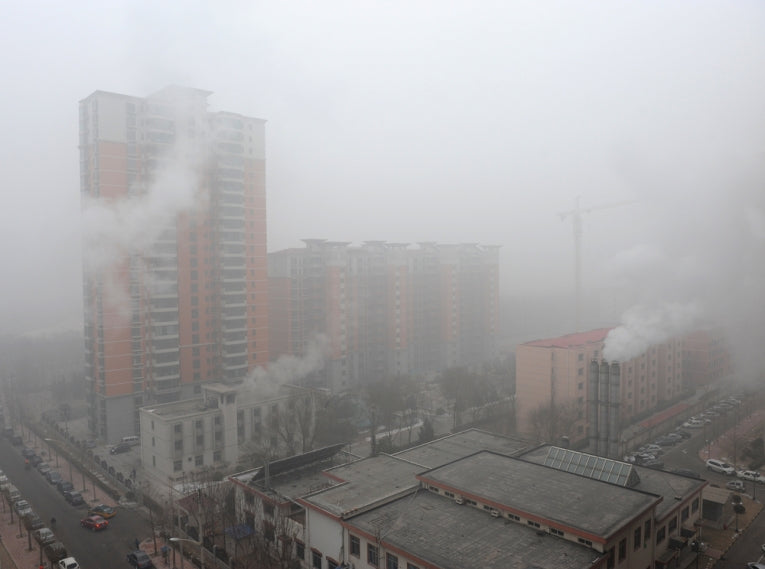Particulate matter in the air we breathe sticks to the lungs and other organs like toast to butter. Along with carbon dioxide and carbon monoxide, the nitrogen oxides and sulphur dioxide, we've been putting up with these molecules, foreign or familiar since the industrial revolution improved our living standard but proved fatal to our ecology. Large numbers of plants, animals and others have had to adapt or die as a consequence!
With the latest news of residents of Guangdong, the suffering seems to repeat the problems of Londoners in the '50s or LA during their photo-chemical smog regimes. Air quality regulation has been drafted for 2 years without any action but rapid expansion for the country has created a Pandora's Box for ordinary people.
Even flights from Beijing Airport have been badly affected. Zhou Rong is one of the campaigners for Greenpeace and helped compile a report with the Public Health Department of Beijing University. While high levels of the fine particulate pollutant, PM2.5, caused over 8,500 premature deaths in four cities, from the economists' point of view around a billion dollars were lost last year.
The South China Morning Post's take on their local pollution headache is full on. As lungs blacken, a Chinese lung expert, Zhing Nanshan says, "People's lungs are turning black as early as their 40s. Particulate matter (PM2.5) can be carriers for sulphur dioxide and even viruses. When they enter the lungs they will always stay there." With a 60% increase in lung cancer over a decade, there's definitely, "something in the air" Zhong believes China should decide which is more important, GDP or the health of the people.
It took the UK 30 years to eliminate London smog, but Professor Zhong wants to use modern methods to cut down air pollution within 10 years. Unfortunately, it seems he and Zhou are in a minority, but new regulations will perhaps change that, if people can see a difference in their quality of life and less of the smells and particles they see right now.










